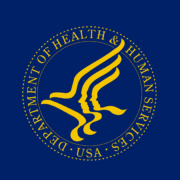February 27, 2024
Media contact: National Consumers League – Melody Merin, melodym@nclnet.org, 202-207-2831
Washington, DC – A coalition of consumer and health groups is urging Treasury Secretary Janet Yellen to ensure that the agency responsible for regulating most alcoholic beverages in the U.S. – the Alcohol and Tobacco Tax and Trade Bureau (TTB) – keeps its commitment to require standardized alcohol labeling on all beer, wine, and distilled spirits products by initiating three promised rulemakings on nutrition, ingredients, and allergen labeling on an accelerated basis.
The appeal comes in the form of a February 27 letter from five leading public interest groups as TTB begins a series of “listening sessions” on labeling and advertising of alcoholic beverages on February 28. Raising concerns that the listening sessions are no more than a delay tactic to maintain the status quo and “slow walk deliberations for months,” the organizations – the Asthma and Allergy Foundation of America (AAFA), Center for Science in the Public Interest (CSPI), Consumer Federation of America (CFA), Food Allergy Research and Education (FARE), and National Consumers League (NCL) – called for TTB to publish the rulemakings by June 2024.
The Treasury Department promised that TTB would issue mandatory alcohol labeling rules in a November 17, 2022 letter in response to a lawsuit filed by CSPI, NCL, and CFA. The Department stated its intention to publish the three rulemakings before the end of 2023.
“We write … to express our dismay and serious concern that TTB has backtracked from its written undertaking of the November 17, 2022 agreement,” the groups wrote to Secretary Yellen. “TTB has, in effect, enabled recalcitrant companies by delaying indefinitely rulemakings on mandatory alcohol labeling while opting for a voluntary rule under which labeling “Serving Facts” or “Alcohol Facts” and ingredients are optional.”
Focusing on the health consequences of delaying action on alcohol labeling, the letter from advocates to Secretary Yellen describes how better alcohol labeling will benefit the 84 percent of U.S. adults who drink alcoholic beverages – 216 million people – and who currently do not have the facts about the alcohol they are consuming to protect their health and safety. Overconsumption of alcohol is a costly public health problem that has become much worse in recent years, as alcohol-related deaths have risen substantially. Among the key concerns, alcohol is involved in about 30 percent of all traffic crash fatalities in the U.S, is a source of empty calories that contributes to obesity, can impact blood sugar control in people with diabetes, and labeling can be a life-or-death matter for people with food allergies. Additionally, excessive drinking increases the risk of liver disease, hypertension, cardiovascular disease, alcohol use disorders, certain cancers and severe injuries.
“The consensus among public health and nutrition experts and consumers themselves, in favor of mandatory and complete alcohol labeling is overwhelming,” said Thomas Gremillion, Director of Food Policy at the Consumer Federation of America. “By reneging on its promise to initiate rulemakings, TTB continues to deny Americans the same helpful and easily accessible labeling information now required for conventional foods, dietary supplements, and nonprescription drugs.”
The letter to Secretary Yellen also stresses that alcohol manufacturers have the capability to put standardized Serving Facts labels on their products, when required. This is the case for products such as some hard ciders, hard seltzers, and wine coolers that are regulated by the Food and Drug Administration, which requires such products to have the same Nutrition Facts panel and ingredients statements on nonalcoholic beverages, from soft drinks to juices.
“To date, TTB has taken the position that requiring standardized nutrient content labeling on alcoholic beverages is too costly and burdensome for beverage alcohol manufacturers,” said Sally Greenberg, CEO of the National Consumers League. “However, the inconvenient truth for the industry is that some of the very same companies whose products do not include a Serving Facts statement if they are regulated by TTB already put complete alcohol labeling on their hard ciders, hard seltzers, wine coolers, and other FDA regulated wines and beers.”
Highlighting that the time has come for mandatory alcohol labeling, the letter makes clear that the agency’s current voluntary labeling rules are not working. Although the rule gives companies the option of putting “Serving Facts” or “Alcohol Facts” and ingredients information on their products, new research from the Center for Science in the Public Interest finds that most manufacturers have opted out of TTB’s voluntary program. Using TTB’s COLA database to examine the labels for 132 of the nation’s top beer and wine brands, CSPI’s study found that only 11 labels of the 65 beer brands examined (17%) and none of the 67 wine brands included ingredients lists while 18 beers (28%) and no wines used the voluntary “Serving Facts” label, and one additional beer brand carried the voluntary “Alcohol Facts” label. CSPI’s review also showed that even when serving information is included on beer and wine labels, there is no standard format for where and how the disclosures appear, making it hard for consumers to find information easily and compare different brands.
“We have the data that demonstrate that Treasury’s voluntary rule has failed to adequately improve transparency in alcohol labeling,” said Dr. Peter G. Lurie, President of the Center for Science in the Public Interest. “Ensuring that the agency ends this ineffective voluntary regime by issuing mandatory labeling rules necessitates national leadership. This is why we are appealing directly to Secretary Yellen to intercede personally to require the agency to commit to publish all three proposed rules by June 2024.”
The 2022 letter whereby TTB undertook to publish standardized alcohol content, calorie, and allergen labeling by the end of 2023 resulted from a lawsuit filed by Center for Science in the Public Interest, Consumer Federation of America, and the National Consumers League on October 3, 2022. The suit charged TTB with failing to act on a citizen petition, submitted to the Treasury Department in 2003 to mandate alcohol labeling. CSPI, CFA, and NCL filed the petition along with a coalition of 66 other organizations and eight individuals, including four deans of schools of public health.
###
About the National Consumers League (NCL)
The National Consumers League, founded in 1899, is America’s pioneer consumer organization. Our mission is to protect and promote social and economic justice for consumers and workers in the United States and abroad. For more information, visit nclnet.org.







 By Nancy Glick, Director of Food and Nutrition Policy
By Nancy Glick, Director of Food and Nutrition Policy













